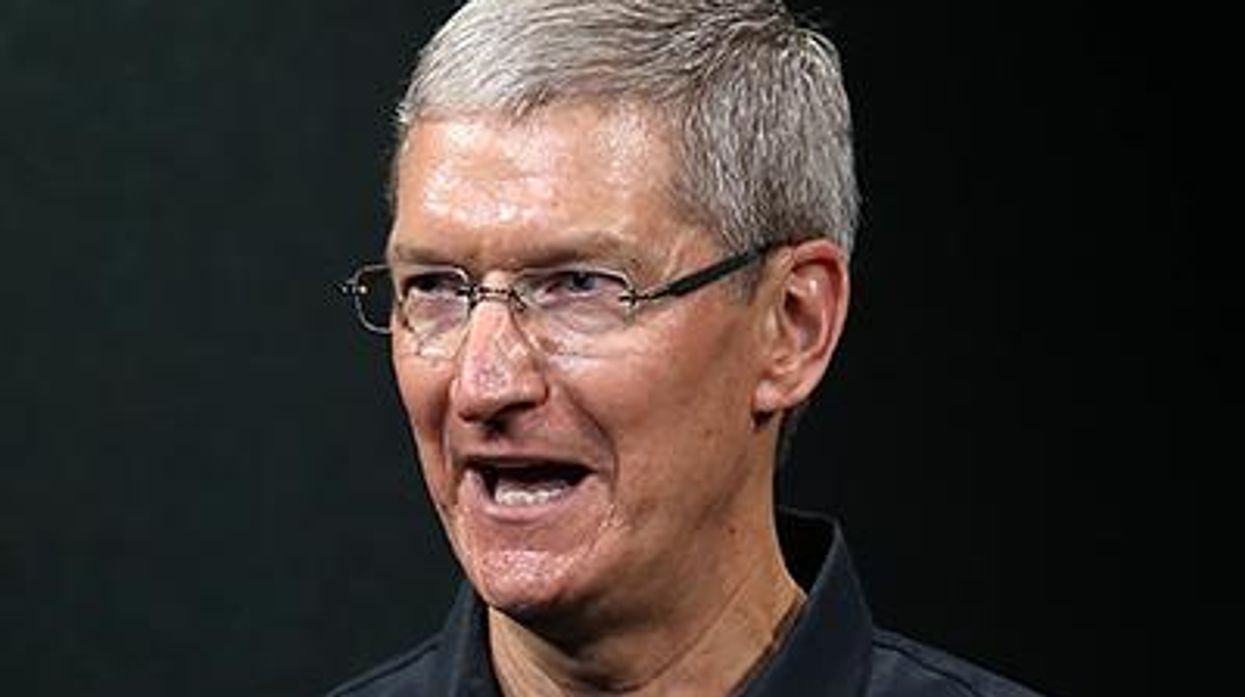I lived my life navigating two identities growing up gay and undocumented in Florida. It hasn't been an easy journey for me and for many of the more than 267,000 undocumented LGBTQ people in the country. It's particularly difficult to call a state like Florida home, where anti-LGBT laws discriminate against people like me on marriage, employment, housing, credit, and multiple other areas.
The same is true about Florida's anti-immigrant sentiment that has reigned. In fact, it wasn't even until this year that undocumented youth were allowed to pay in-state tuition fees for college. Meanwhile, several police departments continue to collaborate with Immigration and Customs Enforcement, and undocumented people are still not allowed to obtain a driver's license.
But Tim Cook's public coming-out has given our community an opportunity to once again talk about discrimination LGBTQ people face even after huge victories for marriage equality. It's also opened up a conversation among LGBTQ immigrant rights advocates to talk about how our complex identities and our rights must advance at the same pace in order for us to live a life free from fear and discrimination.
In 2012, immigrant youth obtained the most significant victory for their community since 1986, after the Deferred Action for Childhood Arrivals program was announced by President Obama to protect DREAM Act-eligible youth against deportation and provide them a work permit. I was one of more than half a million youth who have benefited from DACA. I keenly remember the day my work permit arrived in the mail. I opened the letter and sent a picture of it to my sister. Not only did she raise me, but as she celebrated that moment with me, she still had to remain in the shadow of her immigration status. Like many of my peers, I was confronted with the harsh reality that I still had to live in fear of losing my loved ones to the deportation machine.
Like many people in the LGBTQ community, I'm part of a nontraditional family. I was raised by my sister because my mother was too sick to take care of me, and after I came out several other members of my family rejected me, but yet my sister remained my strongest advocate. This is the reason why we're fighting for DACA to be expanded to people like my sister and millions of others who deserve to live with dignity and to finally realize their full potential.
And when I was finally allowed to legally work in the United States, I could still be fired for my sexual orientation. I lived in a state that did not protect me against employment discrimination. Several counties in Florida have not created ordinances to protect LGBTQ people against housing discrimination, which means that even though I could finally co-sign a lease with my husband, I could be evicted based on my sexual orientation. The truth is that for LGBTQ youth who benefited from DACA and who live in most states of the U.S., we are not protected against discrimination based on our sexual orientation and gender identity. We have received temporary relief from deportation but we are yet to find relief from discrimination.
It's true that President Obama has indeed showed leadership in critical moments for the LGBTQ community after pressure from grassroots activists. But the 2 million deportations for which President Obama is responsible will define him and the Democratic Party for generations to come unless he uses his executive authority and acts boldly to give relief to millions of immigrants.
As we look forward to the future of the progressive movement, we must acknowledge the complexities of our identities and understand that our freedom is connected. Mr. Cook shared one of his favorite quotes from Dr. Martin Luther King, Jr., so I find it fitting to share a quote from him, that provides inspiration to my work: "I have worked too long and hard against segregated public accommodations to end up segregating my moral concern. Justice is indivisible."
Let's build a path forward together by addressing our social problems without ever leaving anyone behind.
FELIPE SOUSA-RODRIGUEZ is the deputy managing director of United We Dream.




































































Charlie Kirk DID say stoning gay people was the 'perfect law' — and these other heinous quotes